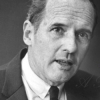Carroll Quigley

Carroll Quigley
Carroll Quigleywas an American historian and theorist of the evolution of civilizations. He is noted for his teaching work as a professor at Georgetown University, for his academic publications, and for his research on the Round Table movement...
NationalityAmerican
ProfessionWriter
Date of Birth9 November 1910
CountryUnited States of America
organization political separation
Our political organization, based as it is on an eighteenth-century separation of powers and on a nineteenth-century nationalist state, is generally recognized to be semiobselete.
organization greek states
...a state is not the same thing as a society, although the Greeks and Romans thought it was. A state is an organization of power on a territorial basis.
civilization organization slavery
The instrument of expansion of Classical civilization was a social organization, slavery.
organization wish might
Capitalism might be defined, if we wish to be scientific, as a form of economic organization motivated by the pursuit of profit within a price structure.
organization effort important
everything is too important ever to be entrusted to professional experts, because every organization of such professionals and every established social organization becomes a vested-interest institution more concerned with its efforts to maintain itself or advance its own interests than to achieve the purpose that society expects it to achieve.
control countries country money recent single subject supply
The supply of money in a single country was subject to no centralized, responsible control in most countries over recent centuries.
civilization firsts complicated
A civilization is complicated, in the first place, because it is dynamic; that is, it is constantly changing in the passage of time, until it has perished.
leaving might empires
It is also in theory, conceivable that some universal empire some day might cover the whole globe, leaving no external "barbarians" to serve as invaders.
outsiders groups members
A society is a group whose members have more relationships with one another then they do with outsiders.
religious political intellectual
The backwardness of our religious and social developments is undoubtedly holding back the development of the intellectual and political levels.
actors process irrational
When we approach history, we are dealing with a conglomeration of irrational continua. Those who deal with history by nonrational processes are the ones who make history, the actors in it.
being-free groups behavior
The social sciences are usually concerned with groups of persons rather than individual persons. The behavior of individuals, being free, is unpredictable.
dinosaurs able would-be
A fully integrated culture would be like the dinosaurs, which had to perish because they were no longer able to adapt themselves to changes in the external environment.
character individual nexus
Each individual in a society is a nexus where innumerable relationships of this character intersect.